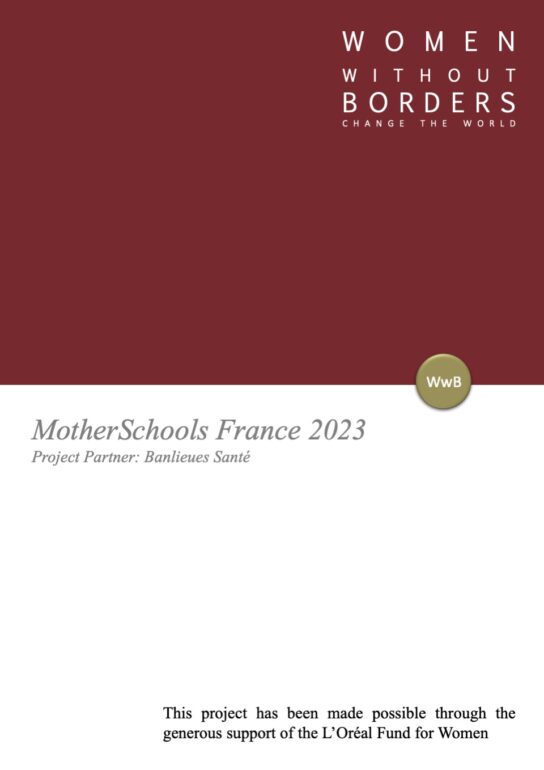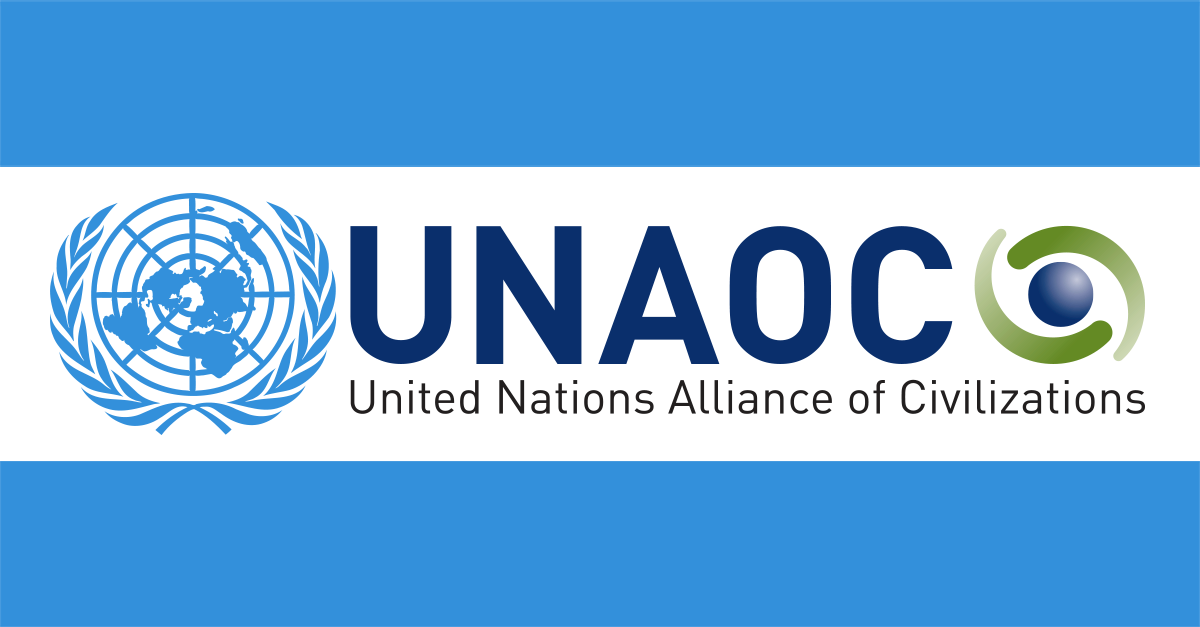Since 2013, Women without Borders (WwB) has been implementing contextualised iterations of its pioneering ‘MotherSchools: Parenting for Peace’ Model in at-risk communities around the world. This grassroots-level intervention strategy brings together concerned and affected mothers in an effort to empower and enable them to confront the threat of radicalisation in their homes and communities. A year into the Model’s inception, WwB convenes fourteen SAVE network leaders in Vienna to partake in the first global MotherSchools-related summit, entitled ‘Can Mothers Stop Terrorism? Voices from the first line of defence’. The participants include experts in the field, government representatives, and WwB’s SAVE network chapter coordinators and activists from Nigeria, Pakistan, India, Indonesia, Tajikistan, and Tanzania. The official launch of the global MotherSchools movement will be followed by a panel presentation, featuring WwB’s partners and their testimonials.
The projects and global community that came to fruition through the Sisters Against Violent Extremism (SAVE) network since 2008 reinforced Women without Borders’ (WwB) understanding that mothers in particular have for too long been excluded from prevention strategies. In an effort to grasp why mothers did not figure prominently and to explore the notion of Mothers Preventing Violent Extremism (MPVE), WwB conducted the first in-depth applied research study centred on mothers and security, entitled ‘Can mothers challenge extremism?’. As part of the SAVE network ‘Mothers for Change’ campaign, WwB observed 1023 mothers’ attitudes towards, perceptions of, and experiences with radicalisation and violent extremism in their families and communities in Pakistan, Palestine, Israel, Nigeria, and Northern Ireland. The research revealed that although mothers are best suited and situated to recognise and react to early warning signs of radicalisation due to their place at the heart of the family, they tend to lack the appropriate space, structures, and training to develop the necessary competence and confidence to assume their prevention role. On the basis of the study findings, WwB conceptualised and developed the pioneering and globally-recognised ‘MotherSchools: Parenting for Peace’ Model.
Since 2013, WwB has been implementing contextualised iterations of its MotherSchools programme in at-risk communities around the world. This grassroots-level intervention strategy brings together concerned and affected mothers in an effort to empower and enable them to confront the threat of radicalisation in their homes and communities. This Model strengthens the participant’s individual capacity, capability, and emotional literacy, and heightens her awareness of radical influences. MotherSchools also upgrade existing social services by providing local stakeholders in at-risk regions with the essential structures, tools, and skills to address and counteract extremist ideologies.
A year into the Model’s inception, WwB convenes fourteen SAVE network leaders in Vienna to partake in the first global MotherSchools-related summit, entitled ‘Can Mothers Stop Terrorism? Voices from the first line of defence’. The participants include experts in the field, government representatives, and WwB’s SAVE network chapter coordinators and activists from Nigeria, Pakistan, India, Indonesia, Tajikistan, and Tanzania. The official launch of the global MotherSchools movement will be followed by a panel presentation, featuring WwB’s partners and their testimonials. The public event will be inaugurated by an Austrian government representative, and Thomas Wuchte, head on anti-terrorism issues at the Organization for Security and Cooperation in Europe (OSCE) will give a speech and highlight the ongoing cooperation between the OSCE and Women without Borders.
After a screening of WwB’s film ‘Your Mother’, Dr. Edit Schlaffer will interview Max Boon from Indonesia, Khadija Mubarak and Anna Darbo from Zanzibar, Ester Ibanga and Khadijah Hwaja Gambo from Nigeria, Shazia Khan from Pakistan, and Archana Kapoor from India. This interactive discussion intends to highlight the speakers’ personal journeys. While Anna Darbo who co-founded WwB’s SAVE network Zanzibar chapter will recount how a family member attempted to recruit her son, Archana Kapoor who reaches thousands of disenfranchised women through her community radio programmes will draw on her experiences to make the case for building up the confidence of women to speak up and safeguard their children.
The participants
India
Archana Kapoor is a longstanding WwB partner. She is a publisher at Hardnews magazine, an independent filmmaker, and Founder at SMART, an NGO that works with marginalised communities in India. SMART has mobilised thousands of women to participate in empowerment and economic sustainability programmes, and she recently set up a community radio station. As a WwB local implementing partner, Archana helped to pilot MotherSchools India in Mewat. She harnessed the reach of her Mewat community radio station to carry MotherSchools messages to a listenership of some 100,000 individuals.
Indonesia
Award-winning researcher and activist Farha (‘Ciciek’) Abdul Assegaf and Max Boon, survivor of the Jakarta Marriott Hotel terrorist attack in 2009, founded Alliance for Peace, which brings together former perpetrators and victims and survivors from across Indonesia to conduct workshops at schools. Their work bears testament to the incredible power of forgiveness, which they promote as an antidote to violent extremism and hatred.
Tajikistan
Zuhro Murodova, programme manager at Save the Children in South Tajikistan, is currently managing a Women of Wealth and Influence development programme that reaches some 30,000 women. With the support of Marifat Shokirova, a senior official of the Committee of Women and Family Affairs in the Tajik Government, and Bekruz Yodgorov, a representative of the OSCE office in Tajikistan’s counter-radicalisation VERLT project, MotherSchools will be rolled out to advance P/CVE efforts in the region.
Pakistan
Shazia Khan is a young member of the marginalised Hazara community in Quetta who lives on a frontier of violent extremism and has lost many loved ones. She works to engage women and the families of victims to promote mutual respect and human values in a climate of fear and discrimination.
Zanzibar, Tanzania
Khadija Mbarak, Director of Secondary Schools in Zanzibar’s Education Ministry, and Anna Dabo, a longstanding community leader for the civil society organisation ZAYEDESA, focus on youth empowerment and vulnerable groups, and on girls and women in particular. They were joined by Mwanaidi Ali, a female rights activist. ZAYEDESA is determined to activate mothers to prevent the spread of radicalisation; the security situation appears to be deteriorating.
Nigeria
The Christian Pastor Esther Ibanga and the Muslim religious leader Khadijah Gambo Hawaja are voices of reason and reconciliation in the Jos Plateau, which is deeply affected by ethnic and religious conflicts. As president and vice-president, they run Women Without Walls, supported by Ada Usigbe, their business administrator and project manager. WWW use development projects and dialogue to enable Christian and Muslim communities to move beyond distrust and killing, and towards a culture of peacebuilding. Women without Borders’ MotherSchools Nigeria programme will complement and support these efforts.



